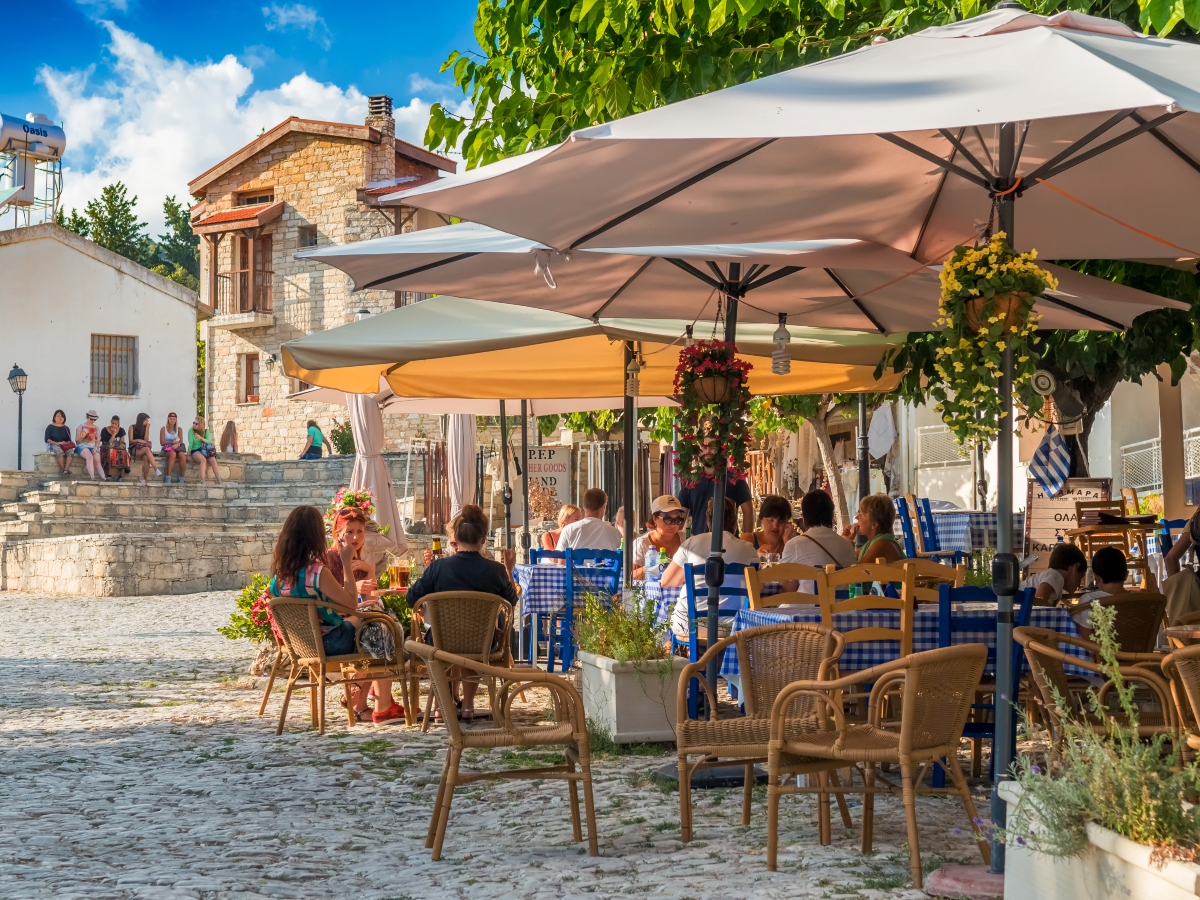(Main image: kirill_makarov via Shutterstock)
Imagine starting your morning slowly sipping rich Cypriot coffee in a sun-drenched café, where conversations flow and waves lap the shore. In the evening, a neighbour invites you to their home for a feast of souvla and meze, insisting that you “eat more” as the wine keeps pouring.
This is what life is like in Cyprus: warm and welcoming with deep roots in tradition. Whether you’re buying a holiday home or relocating for retirement or to start a new life, understanding Cypriot culture will help you settle in and feel at home faster.
Community is everything
Cyprus is known for its warm hospitality, where friendships are quickly formed, and neighbours become extended family.
A friendly greeting goes a long way – expect a handshake at first, but once you’re acquainted, don’t be surprised by a kiss on both cheeks.
Community life is strong and social ties are important. Family gatherings often involve multiple generations, and you’ll find that locals take great pride in welcoming newcomers. Being invited to a Cypriot home is a genuine gesture of friendship, and it’s customary to bring a small gift, such as wine or sweets.
Embrace a slower pace
One of the biggest cultural shifts for new residents is adjusting to Cyprus’ relaxed pace of life – often summed up by the phrase siga-siga (slowly, slowly).
Things don’t always happen quickly in Cyprus – whether it’s waiting for paperwork or simply getting used to a more laid-back approach to timekeeping.
But once you embrace it, you’ll see that life can be more enjoyable this way.
Enjoy leisurely meals
Food is more than just fuel in Cyprus – it’s an experience to be shared.
Meals are long, leisurely and social, often centred around meze, a selection of small dishes that can include grilled meats, seafood, dips and cheeses.
If you’re invited to a meal, expect generous portions and plenty of encouragement to eat more. Turning down food can be seen as impolite, so it’s best to pace yourself.
Eating out is equally relaxed. While tipping isn’t expected in the same way as in the UK, rounding up the bill or leaving a small amount is appreciated.
Dinner tends to start later in the evening, particularly in summer when the heat has subsided.
Café culture: it’s more than just coffee
Cafés in Cyprus aren’t just places to grab a drink – they are the heart of social life.
Whether in a lively city or a quiet village, you’ll see locals spending hours in cafes, either chatting, reading or playing tavli (backgammon).
Coffee is taken seriously in Cyprus. Cypriot coffee is a strong, unfiltered brew served in small cups. You can order it sketo (without sugar), metrio (medium sweetness) or glyko (sweet). Frappé, an iced coffee made from instant coffee, is another favourite, particularly in the summer months. More recently, freddo espresso and freddo cappuccino are commonly found on menus too.
If you want to blend in, don’t rush. Cypriots enjoy their coffee slowly, whether over lively conversation or quiet contemplation.
Celebrations galore
Life in Cyprus revolves around festivals, many of which have deep religious and cultural significance.
The most important celebration is Orthodox Easter, marked by midnight church services, feasting and fireworks. Unlike in the UK, Easter in Cyprus is often more significant than Christmas.
Throughout the year, local festivals showcase Cypriot food, music and traditions. The Limassol Carnival in February or March is a colourful event with parades and street parties, while the Wine Festival in Limassol celebrates Cyprus’s long winemaking heritage.
For food lovers, village festivals dedicated to halloumi cheese, olives and honey offer an authentic taste of Cypriot produce.
Wherever you choose to live, these events provide a great way to integrate into the local community.
For more information about buying property in Cyprus, download the Cyprus Buying Guide.
Currency Zone
For guidance on managing your exposure to the ever-changing currency markets, head to our Currency Zone. We partner with Smart Currency Exchange, an FCA-authorised currency specialist. Choosing to work with a currency specialist rather than your high-street bank will enable you to benefit from their competitive exchange rates and specialist currency knowledge. For more information, head to our Currency Zone.
Written by PropertyGuides for Rightmove





